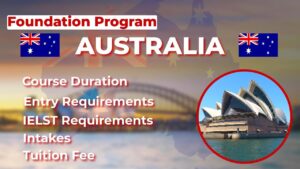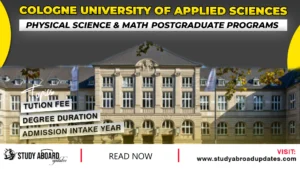The nation of croissants, quaint cafes, and extensive history—France— has one of the best educational systems in the world. Are you intrigued by cutting-edge studies? Studying in France is a lifetime chance to combine outstanding academic performance with a fascinating cultural immersion.
Capital city: Paris
10 largest ci1es in France: are Paris, Marseille, Lyon, Toulouse, Nice, Nantes, Montpellier, Strasbourg, Bordeaux and Lille.
Other famous ci1es: Bordeaux, Cannes, Chamonix, Chartres, Clermont-Ferrand, Limoges.
France has a network of around 3,900 public and private education institutions, making it the fourth-most popular destination for international students. France is one of the most abrasive countries in terms of international mobility. It is the most well-liked nation that does not speak English.

Why France
- Minimum wage rate is guaranteed = 11 Euros
- Student can work 20 hours per week
- 20% refund on the student housing
- 6th Largest Economy in the world
- one year PSW alert degree
- Jobs available in Tourism, IT, Engineering, medical, etc
- Work permit 1 Year (39000 Euros) Work permit up to 4 Years (39000 Euros).
- Blue Card 10 Years (54000 Euros)
- No application fee for admission
Entry Requirements
HSSC: 50% minimum
Bachelors: 2.5 CGPA or 60% marks (Students with less CGPA can also apply)
English Language Requirements
Good knowledge of English is an essential requirement. However, many universities can accept MOI letters.
Minimum English Language Test Requirements
| Test type Minimum score required | |
| TOEFL (IBT) | 76 |
| TOEFL (Computer-based) | 230 |
| TOEFL (paper version) | 550 |
| IELTS | 6.0 |
| Cambridge Examination | C |
| Advanced Cambridge test | B |
Students who come from an English-speaking country or have a diploma from a University where the courses are taught in English are not required to take English tests.
Intakes, Admissions Open dates & Deadlines
In French universities, there are typically three intakes per academic year. Some institutions refer to these intakes as terms.
1- Fall Intake (September/October): This is the largest and most popular intake for international students.
Application Opens: This typically starts in mid-January and can extend into early February.
Application Deadline: This is usually between March and May of the same year.
2—Spring Intake (January/February): This is a secondary intake with fewer program options than the Fall intake.
Application Opens: This might open around September or October of the preceding year.
Application Deadline: Typically, deadlines for the spring admission are in October or November of the year before.
3- Summer Intake (May/June): This is the most negligible intake and has the least availability for programs and scholarships.
Application Opens: This intake often has the latest application window, potentially starting in February or March.
Application Deadline: Normally, the deadlines for the summer admission fall in February or March of that year.
Tuition fees
Public University fees range from 250 to 4000 Euro annually for international students. Private University fees range from 4,000 Euro to 35000 Euro per year for international students.
Scholarships
Scholarships in France for Pakistani students are available on merit-based. France offers exciting scholarship opportunities, making it an attractive destination for those pursuing higher education abroad. French universities and governments offer partial or fully funded scholarships to international students.
Degree Duration
The duration of a Bachelor’s degree in France is typically 3 years:
License 1 means 1st year of Bachelors
License 2 means 2nd year of Bachelors
License 3 means 3rd year of Bachelors
- License (L 1, L 2, L 3): This is the most common type of Bachelor’s degree in France and is considered a national higher education diploma. It’s achieved through six semesters of study, lasting three years.
- Professional Bachelors: These are also Bachelor’s degrees but can vary in duration. They are designed to provide students with job-specific skills and qualifications. The program length can be one year (120 ECTS credits), two years (180 ECTS credits), or the standard three years (180 ECTS credits), depending on the specific program and institution.
The duration of a Master’s degree in France is 1 to 2 years, depending on the specific program and type of Master’s:
- Master’s (M1, M2): The most common type of Master’s degree in France follows a two-year structure. This involves:
- Master 1 (M1): The first year of the program, typically lasting one year (two semesters).
- Master 2 (M2): The second and final year, also lasting one year (two semesters).
So, a Master’s degree through this route typically takes two years.
• The duration of the Ph.D. program is around 3 to 5 years.
Admission Checklist
If you are not from an EU country, when applying for admission in France, you need: 1. Completed university application
2. High school and college transcripts
3. Copy of passport
4. A passport-sized photo
5. Essay / SOP (if asked)
6. English proficiency results (TOEFL, IELTS, Duo lingo, etc.)
7. Copy of birth certificate
8. Certified translation of the birthplace of your parents
9. Proof that you can support yourself financially
10. Any other required document depending on the University
Visa Information, Student VLS-TS (long-term residence permit)
- Visa application: Process takes 3 months. You should apply for a visa up to 3 months before departure date (check lead for visa appointment)
- Student visa fee: EUR 99
- Visa application process:
- Online application => book appointment => submit supporting documents => pay fee + biometrics => Visa application outcome
Visa checklist
- Passport/Travel document (valid for at least three months longer than the Student visa expiry date)
- All academic docs (At Least a Hon from IBCC, HEC, and MOFA is recommended)
- Medical insurance (30k Euros coverage)
- SOP (Statement of Purpose)
- Interview according to your SOP
- ID Photos
- Certificate of Registration from the University
- Financial evidence: EUR 6,15 a month (or EUR 7,380 over 12 months) – EUR 1k/month recommended, Proof of reliable and regular income of financial sponsor (6 months + financial evidence history recommended)
- Bank statement: 6 months old bank statement
- Formula of bank statement: Living one year + Remaining fee
- Accommodation documents and proof
- Parental consent along with parents’ ID document and Proof of relationship, e.g., Birth certificate (if the applicant is under 18 years old)
- All documents that are not in French/English need to be translated into French or English
How to apply for the visa
In Pakistan, you can only submit your visa application for France at the French Embassy in Islamabad. The Consulate General of France in Karachi does not accept visa applications.
Here’s the relevant information for the French Embassy in Islamabad:
• Address: Plot No. 10 & 11, Diplomatic Enclave, Sector G-5, Islamabad, Pakistan Google Maps: [invalid URL removed]
• Website: hIps://pk.ambafrance.org/-France-in-Pakistan
Keep in mind these points
- Visa Application Process: It is recommended that you use the French government’s official website, France-Visas (hIps://france-visas.gouv.fr/), to initiate your visa application process. This website guides you through the steps, helps you determine the visa type you need, and provides a list of required documents.
- Appointment Booking: Once you clearly understand the visa type and documents, you’ll need to book an appointment to submit your application in person at the French Embassy in Islamabad. Appointments are made through approved visa application centers – for Pakistan, this is AEG French Visa Services (they charge 25k for appointment booking) (hIps://frenchvisa.aeg.com.pk/). They book appointment against Student EEF number. You cannot book appointments directly with the Embassy.
Famous universities in France
1—Sorbonne University (Paris) offers a wide range of programs in the humanities, social sciences, sciences, and medicine.
2- Université de Paris (Paris): Famous for Arts, HumaniHes, and Languages, Social Sciences and Law, Science and Engineering, Health Sciences
3- Université Paris-Saclay (Paris): It is known for its strength in science, engineering, and technology.
4- PSL – Paris Sciences et Le\res (Paris): PSL offers a wide range of programs in science, humanities, and social sciences
5- Aix-Marseille Université (Marseille): Aix-Marseille Université offers various programs in all disciplines.
6- École Polytechnique (Paris): A world-renowned science, engineering, and mathematics institution.
7—Sciences Po Paris (Paris): This is a leading university for political science, international relations, and social sciences.
8—Université Grenoble Alpes (UGA) (Grenoble): This is a renowned university known for its strength in science, technology, and social sciences.
9- Université de Montpellier (Montpellier): A historic university offering many programs, including medicine, law, and business. Montpellier is a vibrant student city in southern France.
10-École Normale Supérieure (ENS) (Paris): A selective and prestigious institution known for its focus on research and excellence in humanities and sciences.
11-KEDGE Business School (Bordeaux – Marseille – Paris) A renowned institute for Business studies.
TOP Universities for MBA
• HEC Paris (Jouy-en-Josas, near Paris)
• INSEAD Business School (Fontainebleau, near Paris)
• ESSEC Business School (Cergy-Pontoise, near Paris)
• EDHEC Business School (Lille)
• ESCP Business School (Paris Campus)
TOP Universities for Engineering
• École Polytechnique (Paris)
• PSL – Paris Sciences et Le\res (Paris)
• Université Paris-Saclay (Paris)
• Grenoble Ins1tute of Technology (Grenoble)
• Ins1tut Na1onal des Sciences Appliquées de Lyon (INSA Lyon) (Lyon) • CentraleSupélec (Gif-sur-Yvette, near Paris)
• Mines ParisTech (Paris)
TOP Universities for Arts and Fashion
• Institut Français de la Mode (IFM) (Paris)
• École Supérieure des Arts Appliqués (ESAA) – École Duperré (Paris)
• ESMOD International (locations in Bordeaux, Lyon, Paris, Rennes, Roubaix) • Paris College of Art (Paris)
• LISAA école de mode (locations in Nantes and Paris)

















